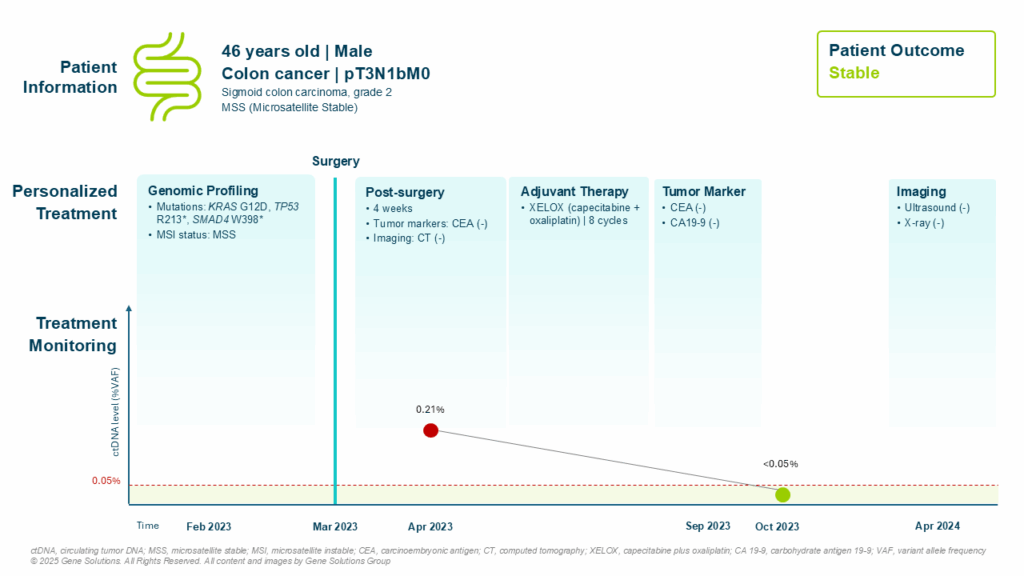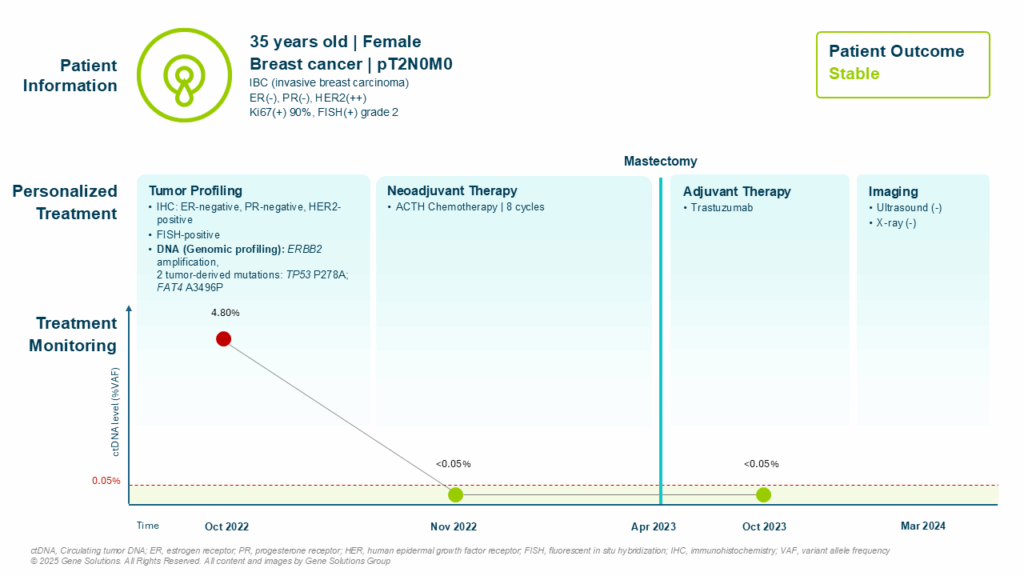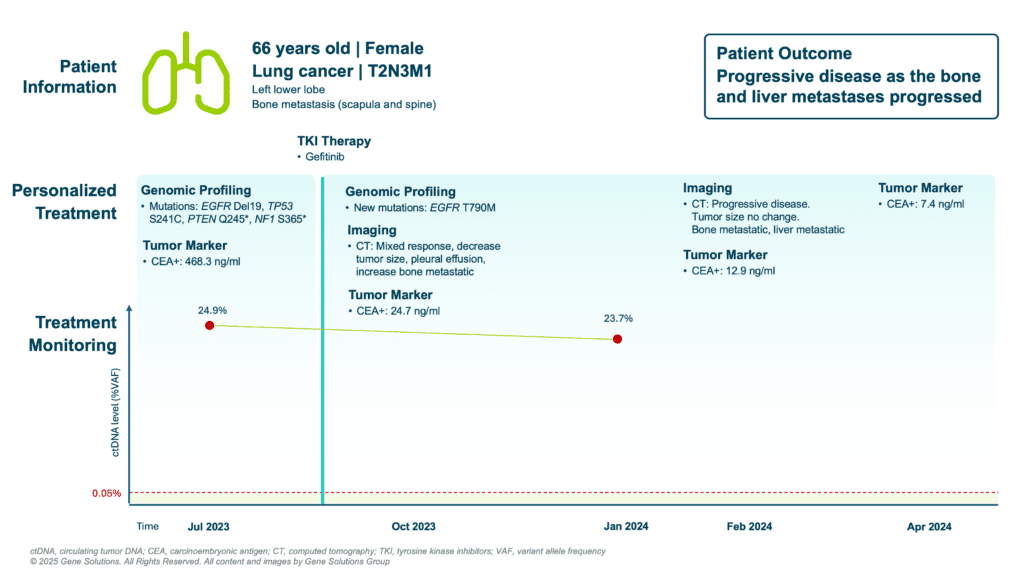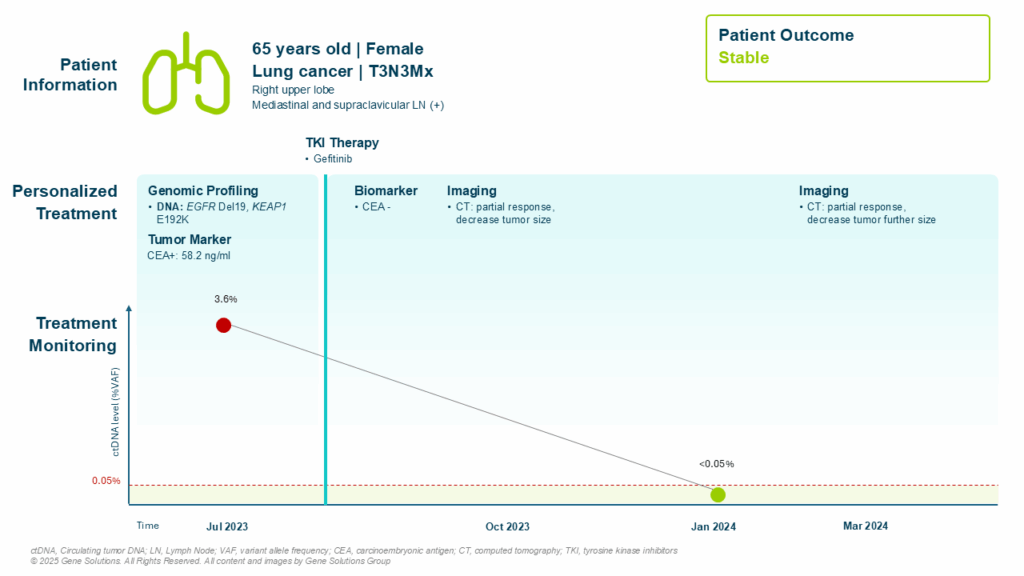Online Resources
Case Studies
Source:
JCO Oncology Advances
Cancer type:
Lung Cancer
The story of a 75-year-old man diagnosed with stage IA lung adenocarcinoma, reminds us that while CT scans remain a staple in surveillance, molecular recurrence can emerge well before structural changes are visible.
- To protect patient confidentiality, all names and images mentioned have been changed

Source:
JCO Oncology Advances
Cancer type:
Colorectal Cancer
This real-world case of Long, a 46-year-old man diagnosed with stage III sigmoid colon cancer, illustrates how both approaches informed risk stratification and a tailored adjuvant treatment strategy.
- To protect patient confidentiality, all names and images mentioned have been changed

Source:
JCO Oncology Advances
Cancer type:
Breast Cancer
Meet Maya, a 35-year-old woman diagnosed with HER2-positive breast cancer. Her story highlights the real-world impact of using both technologies to personalize treatment, track progress, and achieve long-term disease control.
- To protect patient confidentiality, all names and images mentioned have been changed

Source:
JCO Oncology Advances
Cancer type:
Lung Cancer
This is the story of a 60-year-old man with stage IV NSCLC, whose case demonstrates how ctDNA monitoring predicted disease progression ahead of imaging, offering a critical opportunity for earlier intervention.
- To protect patient confidentiality, all names and images mentioned have been changed

Source:
JCO Oncology Advances
Cancer type:
Lung Cancer
The case of a 66-year-old woman with metastatic lung cancer, illustrates how genomic profiling and ctDNA monitoring together provide a sharper, more dynamic view of tumor evolution — even when conventional markers appear to improve.
- To protect patient confidentiality, all names and images mentioned have been changed

Source:
JCO Oncology Advances
Cancer type:
Lung Cancer
The case of a 65-year-old woman with EGFR-mutant illustrates how genomic profiling and ctDNA monitoring work hand-in-hand to guide therapy and track response — well before imaging changes become apparent.
- To protect patient confidentiality, all names and images mentioned have been changed

